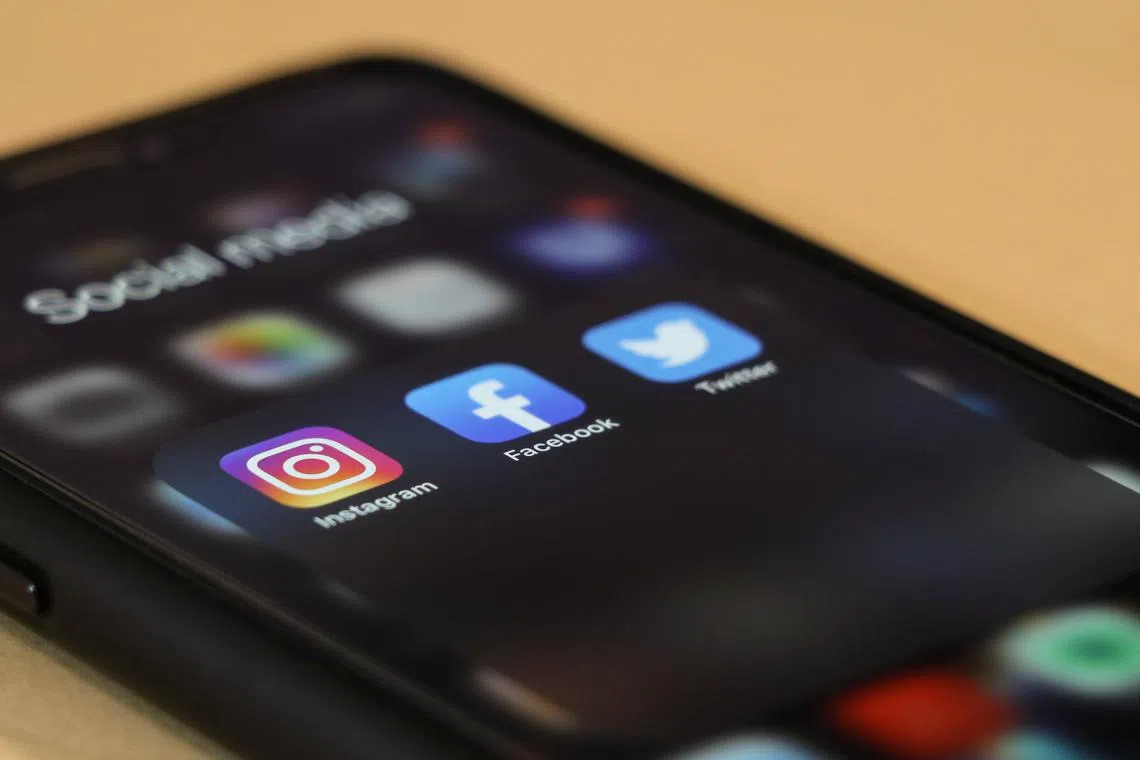Policymakers, tech firms, parents must act to minimise social media’s harm to kids: US surgeon general
Sign up now: Get ST's newsletters delivered to your inbox

Social media use is nearly universal among the young in the US, but there is currently not enough data to show that it is safe for them.
PHOTO: UNSPLASH
Follow topic:
SINGAPORE – United States Surgeon-General Vivek Murthy has issued an advisory urging parents, young users, policymakers, technology firms and researchers to act now to create healthy and safe social media environments, to minimise harm to the mental health and well-being of children and adolescents.
Social media use is nearly universal among the young in the US, but there is currently not enough data to show that it is safe for them, said Dr Murthy last week.
In fact, there is growing evidence that social media use is associated with harm to young people’s mental health. Harmful content exposure and the excessive and problematic use of social media are key areas of concern.
More research is needed to determine the full impact social media use has on children and adolescents, but they do not have the luxury of waiting years until the full extent of social media’s effects is clear, the advisory said.
“While nearly all parents believe they have a responsibility to protect their children from inappropriate content online, the entire burden of mitigating the risk of harm of social media cannot be placed on the shoulders of children and parents,” it said.
What can be done?
1. Policymakers can strengthen age-appropriate safety standards, limit access in ways that make social media safer for children of all ages, better protect children’s privacy, support digital and media literacy, and fund additional research.
2. Technology companies can facilitate transparent and independent assessments of the impact of social media products and services on children and adolescents, and prioritise health and safety in the design and development of these products to protect children’s privacy and enforce age minimums. They should also create systems to thoroughly investigate online complaints, and respond in a timely and transparent manner.
3. Parents and caregivers can create a family media plan that lays out technology boundaries at home, set up tech-free zones, model responsible social media behaviour, and report problematic content and activity.
4. Children and adolescents can limit their own time on platforms, block unwanted contacts and content, be careful about sharing personal information, and reach out if they or a friend need help or see harassment or abuse on the platforms.
5. Researchers can further prioritise social media and youth mental health research, and develop and establish standardised definitions and measures for social media and mental health outcomes.


